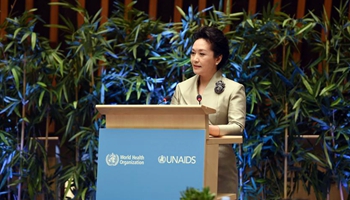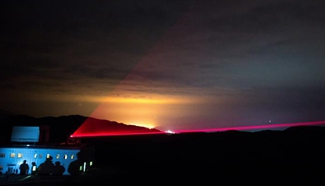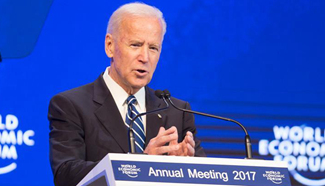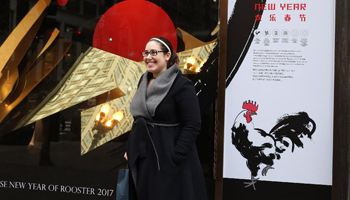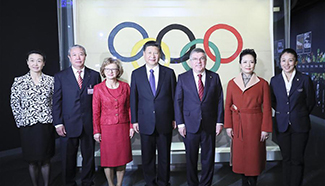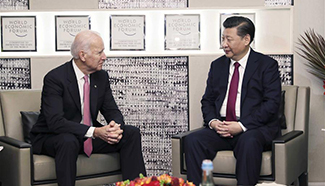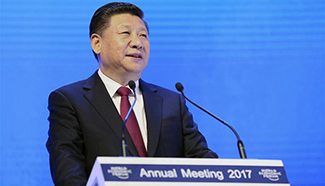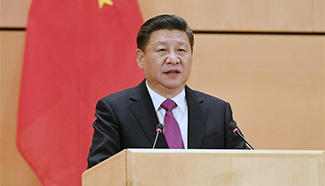JERUSALEM, Jan. 18 (Xinhua) -- Israeli authorities said a policeman and a civilian were killed during clashes following the arrival of police forces intent on demolishing a Bedouin village in southern Israel on Wednesday.
The incident occurred before dawn, as hundreds of police officers arrived in the village of Umm al-Hiran, a village not recognized by Israeli authorities, in order to evacuate its residents as part of a government plan to build a Jewish town in its place.
A police official informed Xinhua that the civilian was shot by police forces after ramming his vehicle into a group of security personnel.
The official deemed the incident a "car-ramming terrorist attack," adding that the "terrorist" struck and killed a policeman before police forces shot him dead.
In addition, the official said the driver was "a member of the southern branch of the Islamist Movement and possibly affiliated with the Islamic State (IS)."
Raja Zaatri, spokesman for the Arab-Jewish Joint List party, identified the 20-year-old male driver as Yaqub Musa Abu al-Kayan, a teacher at a local school.
His death sparked outrage and protest in the Arab society in Israel, as eyewitness accounts denied the attempted attack against police forces.
Raed Abu al-Jihad, resident of the village of Umm al-Hiran and an eyewitness, told Israeli Radio that al-Kayan did not attempt to drive over the policemen.
"They shot him as he was driving his jeep, so the vehicle then started sliding out of control, eventually hitting the cops," he said.
Rabbi Arik Ascherman of Haqel, a Jewish-Arab human rights group, said the police "raided the village and assaulted" residents using excessive force, including tear gas, stun grenades, and rubber bullets.
Ayman Odeh, a legislator and leader of the Joint List faction, was injured during the clashes and transferred to a hospital.
Odeh's spokeswoman said he suffered a head injury caused by a rubber bullet.
Arabs account for around 20 percent of the Israeli population.
They have full citizenship yet frequently face unfair discrimination and treatment in employment and housing sectors.
Currently, about 192,000 Bedouins, or indigenous Arabs, live in the Negev Desert.
Most of their villages which were erected before the 1948 Israeli statehood, remain unrecognized by the state, and suffer from a lack of infrastructure and resources.

